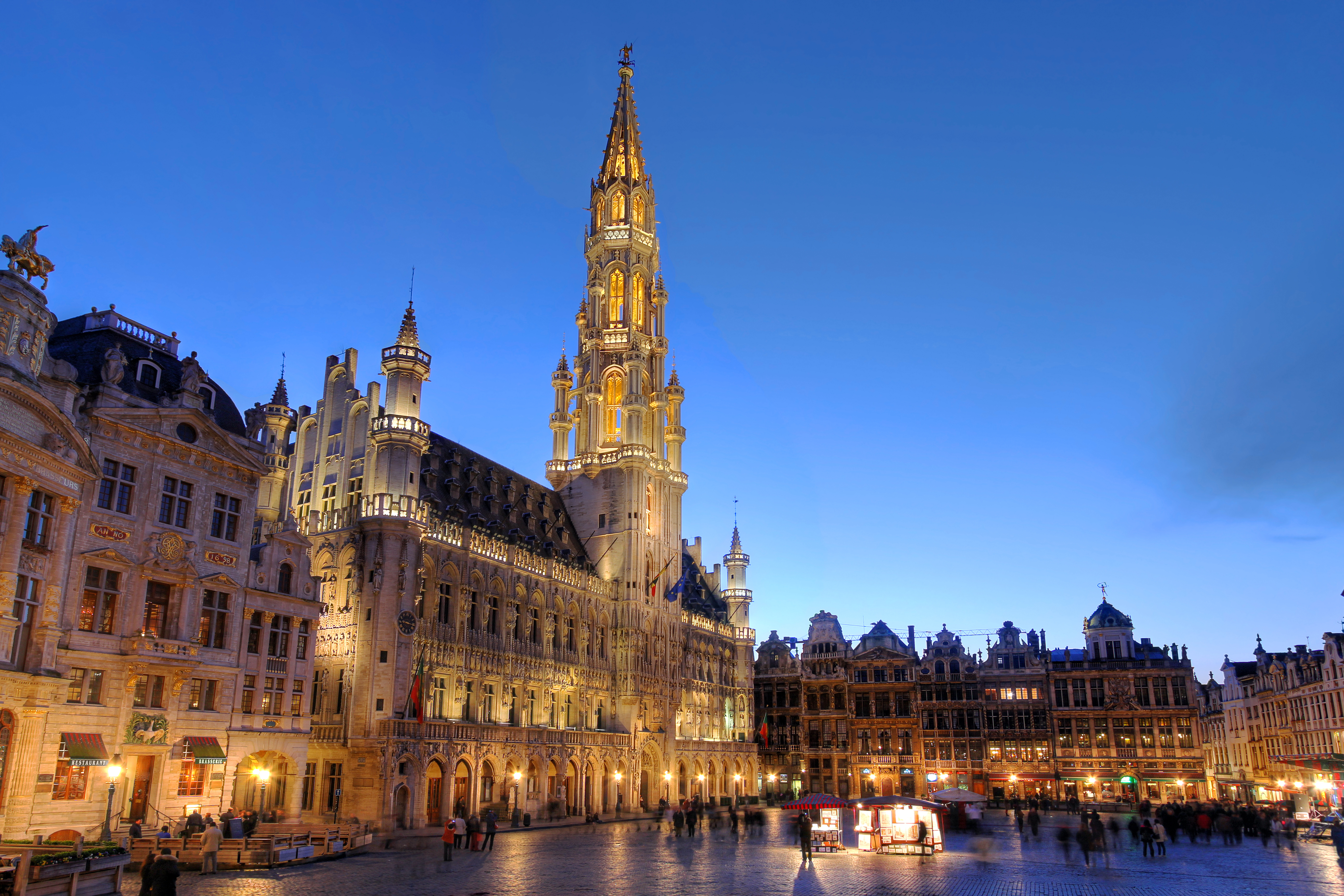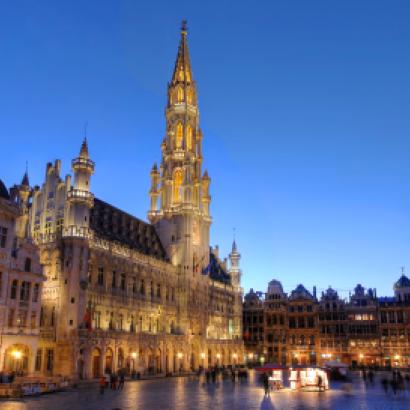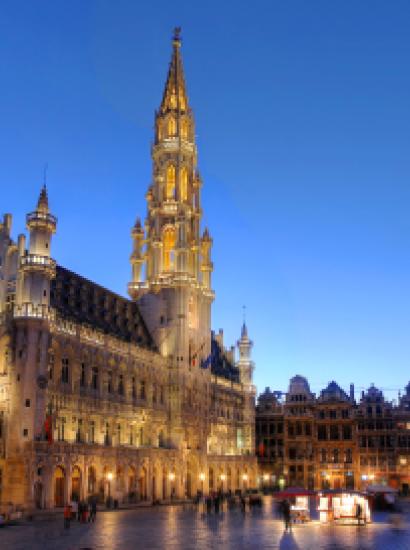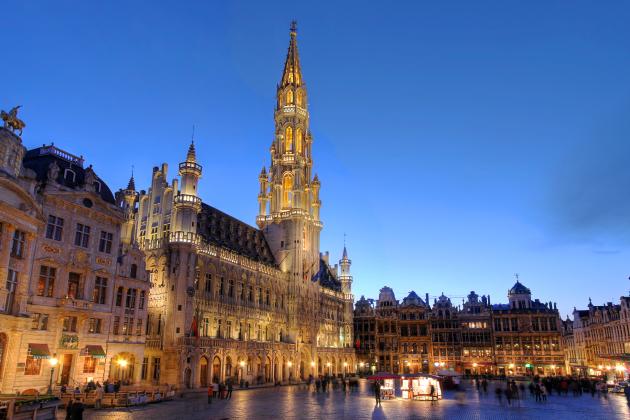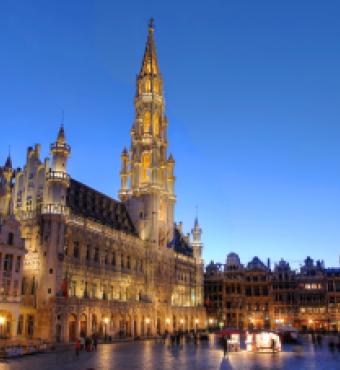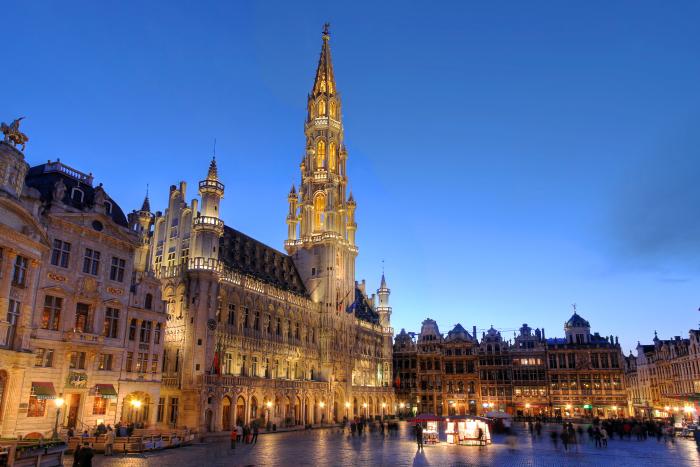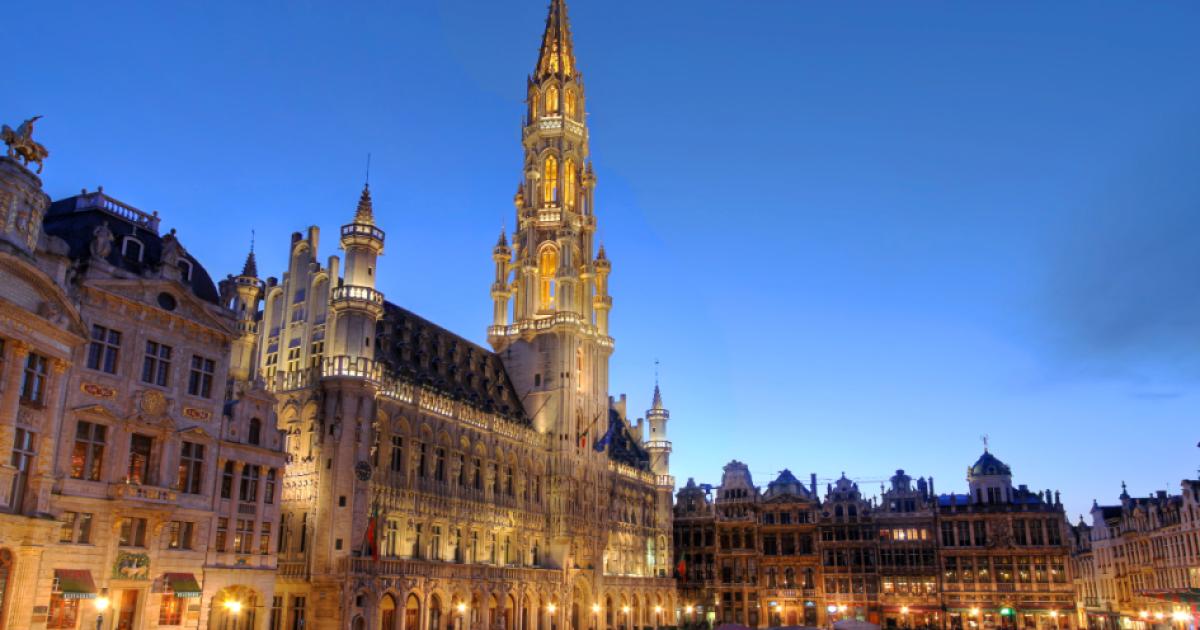- Security & Defense
- Terrorism
With the March 22nd Brussels attacks, the Islamic State did not merely hit Belgium: as Dabiq, the organization’s gory and glossy online magazine stressed, it also struck Europe “at its heart.” Indeed, the second bombing on that day, at the Maalbeek Metro station, took place on the outskirts of the so-called European District, where most of the European Union’s institutions have their headquarters. It happened within half a mile of the Berlaymont, the massive, austere building which hosts the European Commission. Beyond the symbolism, the terror campaign that the Islamic State is waging on the continent is shaking a weakened Union and could ultimately undermine the European project.
The decision to open a new front in Europe might be a consequence of the recent setbacks that the Islamic State has experienced in Syria and Iraq. But the move also fits within the group's notion that Western Muslims inhabit a "grey zone," neither following the ways of the fantasized caliphate, nor fully integrating with the Western mainstream. Through repeated terrorist attacks, the Islamic State hopes to provoke a political and security backlash against these Muslims, thus pushing them to embrace the radicals and eventually, to join the caliphate. The group’s call on its followers to assassinate liberal or moderate Muslim clerics in Europe (and in the U.S.) serves the same purpose: ensuring that there is no space for dialogue, let alone for integration.
In the Islamic State’s own words, “Paris was a warning. Brussels was a reminder. What is yet to come will be more devastating and bitter.” In France alone, several plots have been foiled before and since the Paris attacks and French officials have repeatedly warned of the possibility of chemical attacks. With more than 5,000 European jihadists believed to have at some point travelled to the battlefields of the Levant, the group can rely on a sizeable reservoir of potential operatives – in addition to other, homegrown radicals. The magnitude of the threat is such that successful attacks are bound to happen again. For security agencies, it amounts to ping-pong with too many balls in play.
Yet the recent attacks also exposed – and indeed exploited – some of the E.U.’s structural weaknesses. Abdelhamid Abaaoud, the organizer of the Paris attacks, boasted in an earlier interview how he managed to escape surveillance and go back and forth to Syria. Just as the monetary union was created without a fiscal union, free movement across Europe was established without strong security cooperation, both among member states and on the Union’s external borders. It took an astonishing seven years – and attacks on two European capitals - for the European Parliament to adopt the ‘Passengers Name Record’, a much needed framework that allows member states to share air travel data.
In the face of transnational plots that spread across jurisdictions, security cooperation and intelligence sharing between member states remains insufficient. Europeans could also make better use of existing tools, like FRONTEX, the Union’s border agency and EUROPOL, its law enforcement agency. The E.U. did devise a Common Security and Defense Policy after the end of the Cold War, and has conducted successful operations within that framework. But that instrument was tailored to stabilize the neighborhood (typically, the Balkans) or to assist in the resolution of even more distant crises (mostly in Africa), not to defend Europe proper. While a dozen E.U. member states contribute to the U.S. led operations against the Islamic State in Syria and Iraq, they do it on a purely national basis.
Worse still, these challenges arise at a time when the E.U. is already facing a series of crises: a fiscal and monetary crisis that resulted in the bailout of several European states and a weakened Euro, an economic crisis, with sluggish growth and endemic unemployment, a migration crisis initially spurred by the Syrian civil war, An integration crisis exemplified by neighborhoods like Molenbeek, the rear base for the Paris and Brussels attacks, plagued with unemployment, social segregation, discrimination, petty crime, drug trafficking - and Salafist influence, an identity crisis centered on the status of Islam in Europe and the issue of migration, and last but not least, a crisis of the European project itself, spanning from the French and Dutch initial rebuke of the 2005 constitutional treaty to the forthcoming Brexit referendum in the U.K.
These crises are correlated and tend to aggravate one another. The Islamic State and its European operatives (most of the Brussels and Paris perpetrators were born and raised in Europe) understand this predicament, and are determined to make the most of it. Freedom of movement, arguably one of the E.U.’s most tangible - and popular - achievements, is already in jeopardy. On June 23rd, British voters will decide on whether to remain in the Union. Whereas the debate was initiated on sovereignty, welfare and fiscal rules, the recent attacks on the European mainland (as well as the current flow of migrants from Syria and beyond) are likely to weigh in on the outcome.
Thus the future of Europe as a political project may very well depend on the ability of the E.U., and of individual member states, to respond to the Islamic State. Should the Europeans fail to tackle the threat while remaining faithful to their values, we could face a very different Europe. And since the E.U. remains Washington’s closest economic, diplomatic and security partner, stakes are high for America too.







